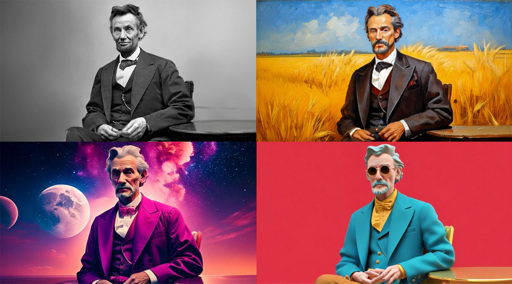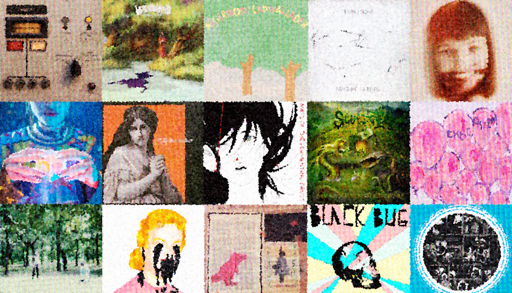Most of us will leave behind a large ‘digital legacy’ when we die. Here’s how to plan what happens to it
-
A long time ago, I had the idea for a startup to keep digital material, including accounts, passwords, old documents, etc. in a digital vault that would be released to the next-of-kin when someone dies. It would also convert documents to newer formats so your old unpublished WordPerfect novel could be opened and read by the grandkids (should they choose).
Problem is, nobody would (or should) trust a startup with that material. This is stuff that should be around for many decades and most startups go out of business.
Bitwarden does all that. If you pay the subscription you get a GB of storage and delegate emergency access to other people.
-
This is something that I've really been thinking about lately as I get older and my kids start to grow up. I've got 60TB+ of digital data, including all my families history of photos and videos digitized which are backed up to 3 separate cloud services, onenote filled with information, password managers filled with logins and details, etc, along with my Steam/Xbox/Playstation/Epic/GOG/etc accounts with 1000+ games on them.
I'm tempted to make a website/app to try and tie it all together in an easy way tbh.
backed up to 3 separate cloud services
Why so many?
-
Yup. My parents aren't even in ill health, let alone dead, but we recently took all the old VHS tapes, including a lot of OTA recordings, and a significant number of DVDs, and dumped them. Recordings of talking with relatives got digitized, same way you'd keep family photos.
I have no expectation that people keep my junk. I'll pass on a handful of stuff like identifying photos of people and places, but nobody wants or needs the 500 photos of my cat. Even I don't want that many, but storage is cheap enough that I don't bother to delete the useless ones.
My wife’s parents recently passed. It took months to slog through their stuff and my wife was over it only weeks in. She dumped so much but constantly fights with herself for both taking more than she wanted/needed to and yet less that what she feels she should have. We’ve told our daughter multiple times “our stuff May mean a lot to us, it doesn’t have to mean anything at all to you. If you don’t want it, never feel bad dumping/selling/letting it go.” Out of all the stuff we all collect in life just by living, barely anything has any sentimental value.
On one hand I’ve got a huge collection of photos and albums I’ve taken and collected. I’m trying to clear some out as I go… but I’m not looking forward to that process when my parents go. My dad’s an avid photographer and I know he has a few hundred thousand photos, most of which are near duplicates and he rarely cleans them up.
-
backed up to 3 separate cloud services
Why so many?
I already pay for storage for one of them for other reasons (M365), but I much prefer Google Photos as a service, especially for sharing photos and albums, so I pay for that too. The third is just some crazy good deal with "iDrive Photos" where it's $5/year for unlimited upload from my phone haha.
Also in case anything happens to one of my accounts, especially since one is tied to my Xbox account and I have kids.
-
Bitwarden does all that. If you pay the subscription you get a GB of storage and delegate emergency access to other people.
Does Bitwarden have emergency delegation now? I’d been waiting for it
-
This post did not contain any content.
In 2017, I helped develop key recommendations for planning your digital legacy. These include:
- creating an inventory of accounts and assets, recording usernames and login information, and if possible, downloading personal content for local storage
- specifying preferences in writing, noting wishes about what content should be preserved, deleted, or shared – and with whom
- using password managers to securely store and share access to information and legacy preferences
- designating a digital executor who has legal authority to carry out your digital legacy wishes and preferences, ideally with legal advice
- using legacy features on available platforms, such as Facebook’s Legacy Contact, Google’s Inactive Account Manager, or Apple’s Digital Legacy.
-
It sounds like something similar to RAG (retrieval augmented generation) or a database lookup. Are you storing the transcripts in a SQL like database or noSQL db or doing semantic similarity on any of it?
I was thinking of a similar project and building a knowledge graph for each person.
-
I only just recently discovered that my installation of Whisper was completely unaware that I had a GPU, and was running entirely on my CPU. So even if you can't get a good LLM running locally you might still be able to get everything turned into text transcripts for eventual future processing.

Nicceeeee! Thank you!
-
This post did not contain any content.
Thanks to capitalism, you don’t own most of that “digital legacy” and do not have the right to bequeath or transfer ownership for the vast majority of it.
-
A long time ago, I had the idea for a startup to keep digital material, including accounts, passwords, old documents, etc. in a digital vault that would be released to the next-of-kin when someone dies. It would also convert documents to newer formats so your old unpublished WordPerfect novel could be opened and read by the grandkids (should they choose).
Problem is, nobody would (or should) trust a startup with that material. This is stuff that should be around for many decades and most startups go out of business.
This is stuff that should be around for many decades
Should it? 99.99% of my email doesn't need to be around for more than a few days, let alone decades. And that number will only go up when I'm dead. Really important stuff, like ownership titles, is on file in paper here in my house and with the relevant title agency.
-
I think it would be interesting to have some kind of global archive. Even if descendants don't care "now" has the potential to be the beginning of the best documented era in history. Historians would kill for photographs by random average people from any other time.
A lot of people thought that that's what the Internet would be, but that's obviously not the case. And I know the "right to be forgotten" is a thing, and deservedly so, but at some point you're throwing out the wine with the amphora.
No, we do have that. Social media is a gold mine for analysis, both for modern sociology and for future archaeology.
-
Does Bitwarden have emergency delegation now? I’d been waiting for it
At least for the 2 years I'm using it
-
This is stuff that should be around for many decades
Should it? 99.99% of my email doesn't need to be around for more than a few days, let alone decades. And that number will only go up when I'm dead. Really important stuff, like ownership titles, is on file in paper here in my house and with the relevant title agency.
A couple years ago, I would have agreed. Most of our email is junk. But nowadays, you can have an LLM digest and summarize it for you. That could also be a service the legacy system offers.
Grandkids can just ask for a free-form search term without having to wade through everything. -
Thanks to capitalism, you don’t own most of that “digital legacy” and do not have the right to bequeath or transfer ownership for the vast majority of it.
You can take ownership of a lot of it. Thanks to GDPR, major platforms offer ways to export data like photos, videos, activity on their platforms, messages etc. Store locally first, avoid over reliance on online platforms for safekeeping your data.
Also, we need to fight to keep ownership of digital media while we still can. Buy movies and music on physical media so they keep making them. Buy physical books. Buy from DRM free platforms like GoG. As convenient as it may be, avoid over reliance on streaming services.
And of course, make backups of anything you care about. Only you can keep your data safe. Online services will only keep your data as long as they can exploit it to make money.
-
You said you released it on your writing. How did you go about doing that? It's a cool use case, and I'm intrigued.
If you’re interested in “chatting” with your writing there’s a couple of out of the box solutions right now, like Kortex or Reflect Notes. They are AI first note taking apps. I don’t use them out of privacy concerns but if you don’t care that much they might allow you to do what you want. They claim to be E2E encrypted and the AI unable to phone home but these are companies that sprung out of nowhere so I don’t trust they necessarily have done all their homework to actually provide full privacy.
Alternatively there’s an Obsidian plugin that I believe allows you to do such a thing as well with local LLMs if you wanted to which is the privacy first way to this. I’ve just moved to Obsidian from Capacities so I have yet to try it out as I’m still setting up my vault.
-
This post did not contain any content.
Who wants to inherit my lemmy comments?
-
This post did not contain any content.
I plan on being dead then, so do what you want with my digital wake.
-
Who wants to inherit my lemmy comments?
I'll inherit yours if you want to inherit mine should I ever die first
-
If you’re interested in “chatting” with your writing there’s a couple of out of the box solutions right now, like Kortex or Reflect Notes. They are AI first note taking apps. I don’t use them out of privacy concerns but if you don’t care that much they might allow you to do what you want. They claim to be E2E encrypted and the AI unable to phone home but these are companies that sprung out of nowhere so I don’t trust they necessarily have done all their homework to actually provide full privacy.
Alternatively there’s an Obsidian plugin that I believe allows you to do such a thing as well with local LLMs if you wanted to which is the privacy first way to this. I’ve just moved to Obsidian from Capacities so I have yet to try it out as I’m still setting up my vault.
Privacy first is my only path. There are a lot of privacyless solutions for this, and they're all dead to me. The obsidian route is pretty cool. Personally, I don't care to chat with it, but I like the auto-tags and auto-summaries.
-
I'll inherit yours if you want to inherit mine should I ever die first
We could make like a death webring.
-
-
Reddit sues Anthropic, alleging its bots accessed Reddit more than 100,000 times since last July
Technology 1
1
-
 1
1
-
Prototype of RTX 5090 Appears With Four 16-Pin Power Connectors, Capable of Delivering 2,400W
Technology 1
1
-
-
-
USDA Reverses Course, Commits to Restore Purged Climate Webpages in Response to Farmers’ Lawsuit
Technology 1
1
-



